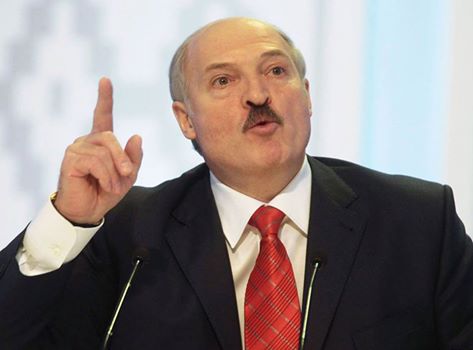Newly released polls by a Kyiv-based polling agency, Democratic Initiatives Foundation, reveal interesting data about the trajectory of Ukrainians’ public opinions since the overthrow of President Viktor Yanukovych and Russian military aggression against the country. The data largely corroborates the findings of past polls, which show that Ukrainians’ opinions on a range of contemporary political opinions have shifted decisively in the pro-EU direction. However, the polls also reflect important differences of opinion between the peoples of different Ukrainian regions, particularly when it comes to the views of the Donbas regions of Donetsk and Luhansk.
Novorossiya Does Not Exist
Among Democratic Initiatives Foundation’s findings, perhaps the most interesting is the data gathered on political opinions towards separatism in the Ukrainian southeast. In the early months of the Russia-Ukraine conflict, Russian policy-makers and talking heads referred to Ukraine’s southeast—territory stretching from Luhansk and Kharkiv to Odesa—as Novorossiya. The term “Novorossiya,” or New Russia, implies that the territory is rightfully Russian and that its inhabitants aspire to separate from Ukraine and join the Russian Federation. However, the data shows that in May 2014 only a tiny fraction of residents wished to separate from Ukraine. In southern and eastern Ukrainian regions, only 4 and 7 percent of respondents, respectively, wanted to join Russia. In September, these numbers were even lower, as only 3 percent of southern Ukraine and 6 percent of eastern Ukraine harbored these separatist tendencies.
The only exception to relatively insignificant support for separatism and unification with Russia came from the Luhansk and Donetsk regions. In May, 45 percent of respondents in the Donbas said that they wanted their region to separate from Ukraine and join Russia. In contrast, 34 percent of the region was opposed to this proposal. By September, the political opinions of Donbas residents had changed significantly. Support for separatism as plummeted from 45 to 22 percent, while the proportion of residents outright opposed to separation from Ukraine has increased from 34 to 48 percent.
Ukrainians Opt for a United Country
The recently released Democratic Initiatives Foundation polls also reveal Ukrainians’ preferences when it comes to the composition of the Ukrainian state. Ukrainians overwhelmingly opt for a unitary state, as nearly three-fourths of respondents decided that a unitary, rather than federal, system is better for the country. However, the plurality of respondents prefers a unitary system that decentralizes power to the various Ukrainian regions. In fact, a plurality of all the areas of Ukraine with the exception of the Donbas chose the unitary system with some powers decentralized to regional governments as the optimal state structure. Sixty-one point four percent of those polled in the west, 48.8 percent of the center, 46.9 percent of the south, and 40.3 of the east responded that a unitary but decentralized system is preferred. In contrast, the Donbas clearly prefers a federated Ukraine, with a plurality of 38.8 percent of the region supporting this option.
A majority of Ukrainians also want to see the Donbas remain as part of Ukraine. The majorities of western and central Ukraine, 73.9 and 52.9 percent respectively, want the Donbas to stay Ukrainian without any special powers to the region. Eastern and southern Ukraine is largely split on the issue. Roughly even numbers of Ukrainian residents of southern and eastern Ukraine want the status of the Donbas to remain the same as it is now and give Donbas greater autonomy from Kyiv. The Donbas region, however, clearly choose the latter option. A plurality of Donbas residents, 42.4 percent, wants to see the Donbas remain in Ukraine but with autonomy from Kyiv.
Options Shifting in the Western Direction
Since March, Ukrainian views on Western institutions such as the European Union and NATO, as well as Russia and Russian-led institutions, have changed significantly. For one, attitudes toward Russians in general have plummeted. A year ago, approximately 80 percent of Ukrainians held positive views on the Russian people. Now, following the annexation of Crimea and the war in Donbas, only half of Ukrainians still say that they think of Russians positively.
At the same time, public opinion has shifted drastically on the European Union and NATO. While support for joining the EU and Russia-led Customs Union were once roughly equal, at present 54 percent of Ukrainians support EU membership for their country, while only 22 percent still support Customs Union membership. Changing views on NATO membership are even more pronounced. In March 2012, a plurality (42 percent) of Ukraine preferred the country’s current status quo, non-aligned status in security affairs. At the time, only 13 percent of Ukrainians preferred NATO and 26 percent were in favor of a military alliance with Russia. . A plurality of 44 percent now favors NATO membership, while 22 percent prefer Ukrainian neutrality and 15 percent choose a military bloc with the Russian Federation.
Furthermore, pro-European political parties are expected to win out at the upcoming parliamentary elections on October 26. According to the Democratic Initiatives Foundation’s election polling, every party that will pass the five percent threshold and gain seats in the upcoming parliament shares a pro-Western, pro-EU and pro-NATO outlook. In order of popularity, Petro Poroshenko Bloc, Batkivshchyna, Radical Party, Civic Position, and People’s Front are expected to be represented in the next parliament. Parties that are opposed to Ukraine’s EU membership or closer relations with the West—including the Party of Regions, the Communist Party of Ukraine, and Strong Ukraine—are not expected to land seats. If these polls are accurate, the upcoming parliamentary elections might signal the start of an even more rapid shift in the pro-Western direction.
Conclusions
The Democratic Initiatives Foundation’s findings seem to corroborate many of the results of both Ukrainian and international polls conducted in the country since the start of the crisis in March. In an environment of foreign aggression, it’s understandable that many Ukrainian have turned away from the prospects of closer ties to the Russian Federation, consequently preferring closer relations with the European Union and NATO. In fact, President Putin’s annexation of Crimea and sponsoring of rebellion in the Donbas has decisively turned most of Ukraine against the prospect of friendly ties with Russia for the foreseeable future.
The Kremlin’s rhetoric about “Novorossiya,” wrongly assuming that large swaths of the Ukrainian southeast are more Russian than Ukrainian, was never supported by the actual data. Instead, only the Donbas regions of Luhansk and Donetsk had significant proportions of people supporting separation from Ukraine in some form or another. With the exception of the Donbas, the plurality of southeast Ukraine preferred, and still opts for, a unitary state system. The Kremlin apparently believed that the “Novorossiya” project could turn much of the southeast against the central government in Kyiv, forcing the interim government’s hand. Instead, Russia got a rump state in the Donbas and the de-legitimatization of pro-Russian political parties. The expected success of pro-European parties in the upcoming parliamentary elections at once signals that the Kremlin’s policies in Ukraine have backfired, and that Ukraine’s westward drift is becoming more and more inevitable.
However, it would be wrong to assume that all Ukrainians share the same preferences. The views of Donbas residents differ significantly from those in the rest of the country. For one, the Donbas was the only region of the country to have harbored substantial support for separatism or autonomy from Kyiv in the beginning of the conflict. Although support for these views have decreased significantly since over the past several months, especially in government-controlled territory, most locals still prefer autonomy from the authorities in Kyiv. In addition, Ukrainians from other parts of the country also want to see evident decentralization to local and regional authorities. This is a signal to Ukrainian policy-makers that pressing forward with de-centralization to the regions is not only supported by most Ukrainians, but is also important when it comes to national security.
Chris Dunnett, Ukraine Crisis Media Center





